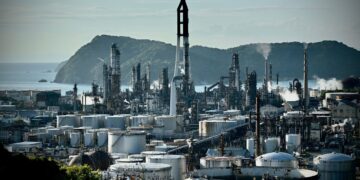Choking Skies: The Hidden Cost of Industrial Progress
Introduction
The narrative of industrial progress is often celebrated for its advancement in technology and boosting economic growth. However, this progress comes at a significant cost. The hidden expenses of this advancement, particularly the environmental and health costs associated with air pollution, have given rise to dire consequences. As industries continue to emit vast quantities of pollutants into the air, we witness an alarming increase in the degradation of air quality, affecting millions globally.
Understanding Industrial Air Pollution
What Constitutes Industrial Pollution?
Industrial pollution involves the release of substances that are harmful to the environment and human health into the atmosphere. Key pollutants include particulate matter (PM2.5 and PM10), sulfur dioxide (SO2), nitrogen oxides (NOx), carbon monoxide (CO), and volatile organic compounds (VOCs), among others. These pollutants stem from various sources including power plants, manufacturing factories, chemical plants, and refineries.
How Does It Affect the Atmosphere?
Industrial pollutants contribute to the formation of smog and acid rain. Smog can significantly reduce air quality and visibility, while acid rain harms aquatic life and vegetation, damages crops, and corrodes buildings and monuments. Both phenomena can have long-term detrimental effects on natural ecosystems and urban environments.
The Health Implications of Poor Air Quality
Immediate Health Effects
Short-term exposure to polluted air can lead to respiratory infections, headaches, nausea, and aggravation of asthma. The fine particulate matter in polluted skies can penetrate deep into the lung tissue and even enter the bloodstream, causing immediate health problems.
Long-Term Health Risks
Chronic exposure to polluted air has been linked to more severe health issues such as cardiovascular diseases, lung cancer, chronic obstructive pulmonary disease (COPD), and stroke. Children, the elderly, and those with pre-existing health conditions are especially vulnerable to these effects.
Economic Impact
The health ramifications of air pollution also translate to significant economic impacts. Increased healthcare costs, lost labor productivity, and premature deaths are profound economic setbacks tied directly to air quality issues.
Economic Implications Beyond Health
Cost to Businesses
Industries face potential losses from damaged equipment due to corrosive air, increased regulations, and potential fines related to emissions. Moreover, businesses may suffer from lost productivity due to sick workers or need to invest heavily in pollution control technologies.
Impact on Global Economy
Globally, poor air quality could cost economies billions annually, as reported by the World Bank and other economic institutions. These costs encompass healthcare, lost productivity, and premature mortality, emphasizing the global economic burden of air pollution.
Measures to Control Industrial Pollution
Government Regulations
To combat air pollution, governments worldwide have enacted various laws and regulations to limit the amount of pollutants industries can emit. For instance, the Clean Air Act in the United States sets national air quality standards and mandates states to achieve them.
Technological Innovations
Advancements in technology have introduced more efficient processes and pollution controls in industries. Technologies like scrubbers, filters, and catalytic converters can significantly reduce emissions from industrial operations.
Renewable Energy
Increasing the use of renewable energy sources such as wind, solar, and hydroelectric power can significantly diminish the dependency on fossil fuels, thereby reducing industrial emissions.
Conclusion: Balancing Progress and Sustainability
The hidden costs of industrial progress, particularly the health and environmental impacts associated with air pollution, require urgent attention and action. Balancing economic growth with environmental sustainability necessitates a collaborative effort between governments, industries, and communities. Investing in clean technologies and enforcing stringent environmental regulations are pivotal steps towards achieving cleaner air and securing a sustainable future for generations to come.
FAQ
How Can Individuals Help Reduce Air Pollution?
Individuals can help by reducing energy consumption, using public transport or carpooling, and supporting policies and practices that aim at reducing air pollution.
What Is Being Done Internationally to Tackle Air Pollution?
Internationally, agreements like the Paris Climate Accord aim to bring countries together to mitigate the effects of climate change, which includes tackling air pollution. Organizations such as the World Health Organization (WHO) are also actively involved in raising awareness and setting guidelines for reducing air pollution globally.
By understanding and addressing the extensive costs associated with industrial air pollution, society can work towards not just economic advancement, but a healthier, sustainable environment for all.







